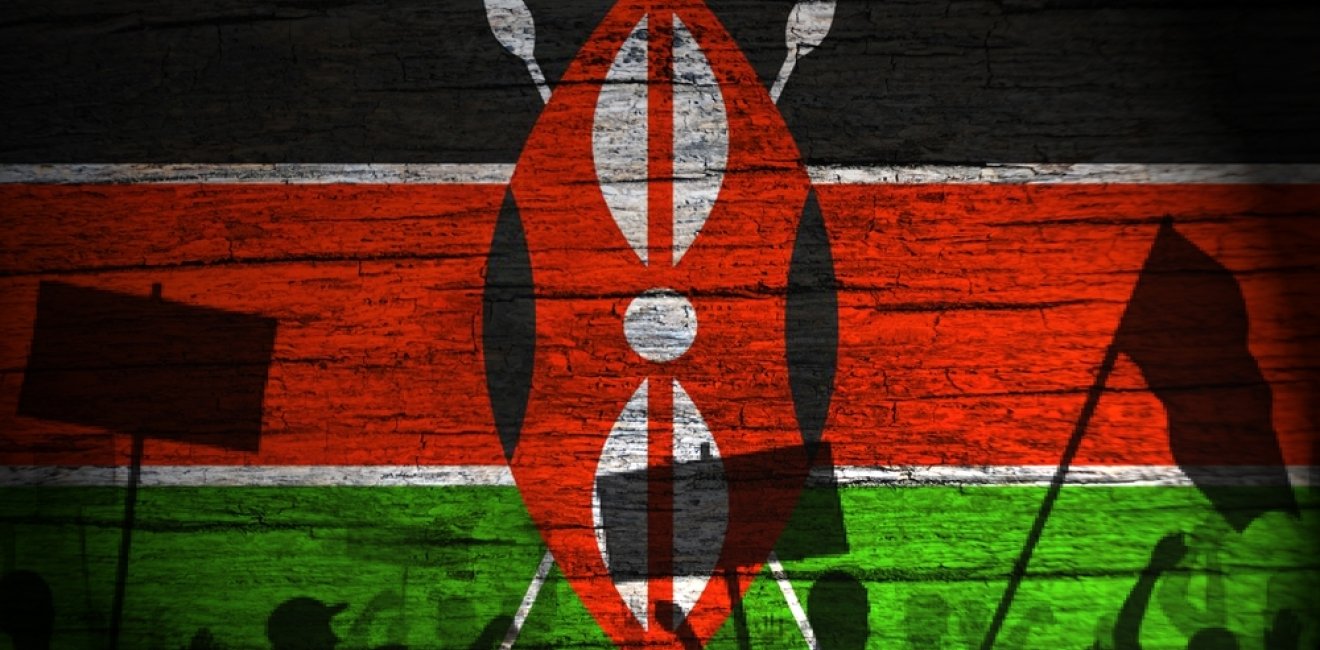Global eyes are on Kenya as citizen-led protests in the nation’s capital have been met with violence from state security forces, leaving many dead and numerous injured. These protests came in opposition to the government’s controversial finance bill, which proposed an increase in taxes on a variety of everyday items from gasoline to food products. A largely youth-led protests movement has demanded the bill’s rejection, arguing that the taxes and fees in the bill will raise the already high cost of living for the Kenyan population, yet government officials deemed the bill necessary in raising a critical $2.7 billion in revenue to reduce the nation’s debt. On June 26th, President Ruto announced that he will not sign the bill, citing the protests as a reason for concession. Going forward, President Ruto will face an uphill battle balancing the demands of his people and pressure from international financial institutions.
In this Q&A, Kenya-based members of the Southern Voices Network for Peacebuilding Dr. Florence Odiwuor and Professor Fredrick Ogenga provide their insights on these recent protests and their implications.
What is the finance bill, and why is it controversial?
Prof. Fredrick Ogenga: The finance bill is a legal document that guides government revenue collection and binds government expenditure every financial year based on projected income from taxes received. It was controversial because it introduced punitive taxes that were going to overburden already overtaxed citizens. In addition, it introduced taxes on goods and services that are mostly consumed by the poor and working class such as bread, diapers, and an added road maintenance levy, which has implications on fuel prices across the board.
Why was there such strong opposition to the bill?
Dr. Florence Odiwuor: The backdrop for these protests is that Kenyans have been pushed to the wall by policies resulting in disillusionment and desperation. The bill was opposed by wide swaths of Kenya’s population for the following reasons:
- The cost of living in Kenya has been spiraling upward for the last couple of years which has led to suffering, increased poverty and intensified food insecurity due to reduced access to food and essential commodities.
- Anger and frustration remain from the passage of the 2023 finance bill which led to monthly deductions on employed Kenyans' salaries. This reduced Kenyans' already low incomes while increasing value-added tax (VAT) on fuel and other products. Another round of taxes on basic commodities as proposed in the Finance Bill 2024 could lead to increased suffering of citizens, especially the poor.
- As the government pushes for increased taxes, public services continue to deteriorate, thus many Kenyans do not feel the impact of their taxes.
- Corruption and mismanagement of financial resources have been ongoing themes in Kenya’s governance and have left many protestors deeply frustrated with the current status quo.
The above factors have given rise to a population where many feel pushed to the wall and are saying enough is enough, with the slogan 'punda amechoka' translated as 'the donkey is worn out'.
What is different in these protests from what we’ve seen in the past?
Dr. Florence Odiwuor: In these protests, the youth emerged as one tribeless group, resulting in protests in all counties of the nation. Gen Z protesters had the support of all other groups including the church, the opposition, labor unions and professional associations. There were elite youth in the streets alongside children of the middle class, only armed with their phones and backpacks containing essentials such as bottles of drinking water, unlike in the past where protestors have been from the lowest socio-economic cadres and equipped with very little. Gen Z males and females in equal measure swung out in millions in Nairobi and most other major towns in the country. They overwhelmed the security details and occupied the central business district (CBD) in Nairobi, unlike the previous protests where protestors were kept away from the CBD by security forces. In this protest, many youths pointed to parliamentarians as unbothered by the voice of their electorate and vowed to conduct civic education campaigns to vote out those whom they see as serving the interest of the executive instead of those who elected them, urging each other to obtain voters card to do so. Protesters also made their way into parliament; this has never happened in the history of the country.
Prof. Fredrick Ogenga: These protests are different because they were leaderless, tribeless and experienced in more than 35 counties in Kenya. Inspired by economic problems and high cost of living due to punitive taxes, the protests were led primarily by highly educated young people who were tech-savvy and well-informed. They coordinated the protests using social media platforms. The youth are driven by #RejectFinanceBill2024 and #OccupyParliament and managed to mobilize protestors in completion of both objectives. They even used social media to record a message on TikTok addressing the President and the Speaker of the National Assembly with a warning against signing the finance bill into law. This was historic, as their voice was heard by the President who ultimately declined to sign the bill.
What are the implications of the government’s response to the protests?
Prof. Fredrick Ogenga: The implications of the government's response are numerous. A primary consequence is the loss of legitimacy and public trust in the government due to the brutality meted on protesters by security agents. This violence seems to be creating an environment of mistrust between the government and citizens that will be challenging to restore. This is evidenced in how the youth continued with their protests despite President Ruto's backing down on the controversial bill.
Dr. Florence Odiwuor: The government's response has been met with fierce criticism both nationally and internationally. The use of excessive force, killing and maiming of unarmed youth and children as well as abductions and torture of those perceived to be in the forefront have led to human rights violations and calls for justice for the victims. This has lowered the reputation of the government, both locally and internationally. President Ruto’s backing down on the controversial bill alone has not seemed to quell the anger of Gen Z; the following day, many young people were back in the streets with claims that Ruto was insincere and cannot be trusted. The Gen Z listed specific minimums, demanding respect for the constitution, an end to extrajudicial killings and police abductions, fiscal discipline, public transparency, moral integrity in public offices, and an end to public theft, corruption, tribalism and nepotism and stated that if their demands are not met, the protests will continue forthwith. Going forward, the ultimate implication of the government's response remains unpredictable, however one future implications of these protest is that it will no longer be business as usual for any government that comes to power. A placard by one of the protesters glaringly read 'Ruto you can kill a Revolutionary but not a Revolution."
The opinions expressed on this blog are solely those of the authors. They do not reflect the views of the Wilson Center or those of Carnegie Corporation of New York. The Wilson Center's Africa Program provides a safe space for various perspectives to be shared and discussed on critical issues of importance to both Africa and the United States.
Responses were edited for length and clarity by Africa Program staff with author approval.
Authors

Lecturer, School of Agriculture, Natural Resources and Environmental Studies, Rongo University, Kenya

Associate Professor of Media and Security Studies, Rongo University and Founding Director, Center for Media, Democracy, Peace & Security (CMDPS).

Africa Program
The Africa Program works to address the most critical issues facing Africa and US-Africa relations, build mutually beneficial US-Africa relations, and enhance knowledge and understanding about Africa in the United States. The Program achieves its mission through in-depth research and analyses, public discussion, working groups, and briefings that bring together policymakers, practitioners, and subject matter experts to analyze and offer practical options for tackling key challenges in Africa and in US-Africa relations. Read more

Explore More
Browse Insights & Analysis
Talking to the Dead to Heal the Living

Russia’s Indigenous Communities and the War in Ukraine




